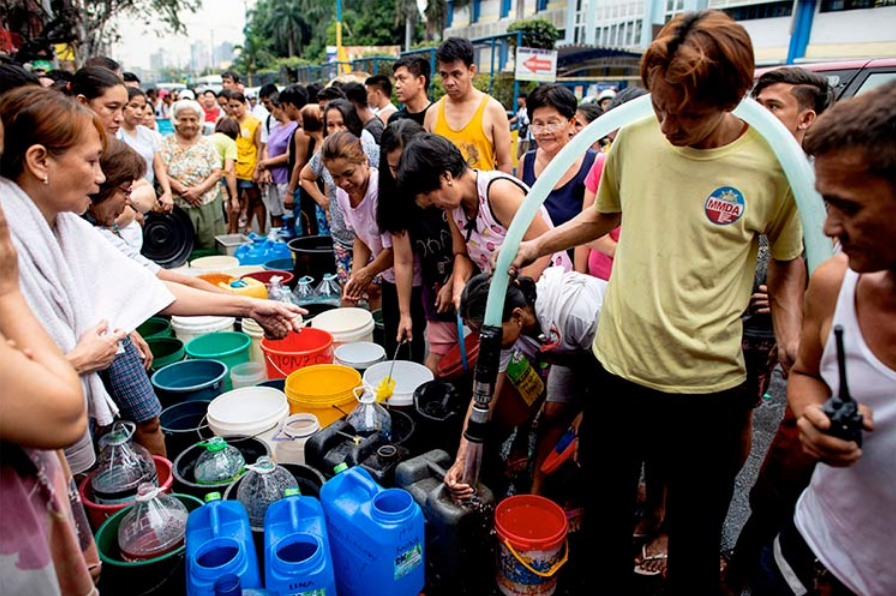Advocacy group Water for the People Network (WPN) said that the ongoing water crisis confirms the failure of water privatization and the need for public control of this essential service. The group said that the disruption of water services for over a million Metro Manila residents amid growing water concessionaire profits is unacceptable. Water services are natural monopolies that should be publicly owned, managed and controlled.
WPN recalled that the Ramos administration hyped a water crisis to justify privatization of water utilities in 1997. Metro Manila residents were promised that the private profit-seeking East and West Zone concessionaires would provide cheap, safe and secure water services.
The water corporations have raked in huge profits. In just the last 10 years, the net incomes of Manila Water and Maynilad have increased by 137% and 444%, respectively, said WPN. Manila Water’s net income grew from Php2.4 billion in 2007 to Php5.7 billion in 2017, while Maynilad’s grew from Php1.3 billion to Php6.8 billion in the same period.
The concessionaires have used their monopoly power to overcharge customers and make these excessive profits. The group noted that water rates have risen by 879% for Manila Water customers and 574% for Maynilad customers since water privatization began in 1997 until January 2019. These increases were four to six times as much as the inflation rate, or the increase in the general price level, over that same period.
WPN said that corporate management of water services has been efficient in producing profits but inefficient in ensuring cheap, safe and secure water services to millions of consumers. Such large profits amid looming months of erratic water supply for so many consumers is grossly unacceptable. The group also asked if the water crisis is due to Manila Water choosing to inflate their profits by not investing in the facilities needed for the ample water supply in Angat and Ipo Dams to be brought to consumers.
The group said that the government is also accountable for allowing water privatization in the first place and for the insufficient regulatory powers of the Metropolitan Waterworks and Sewerage System (MWSS). For instance, the MWSS-Regulatory Office (MWSS-RO) is overly dependent on monitoring reports and other information coming from the water concessionaires.
Privatization has also undermined transparency, said WPN. The group recalled its difficulty getting information from the MWSS-RO on the rate rebasing process and negotiations with the water firms. It took sustained public pressure by WPN and other concerned groups during the latest rate rebasing in 2018 to have the concessionaires’ business plans posted on the MWSS website.
The same lack of transparency is at work today resulting in conflicting accounts by Manila Water and government agencies on the Metro Manila water crisis. WPN said that transparency should be continuous and the public should not have to rely on ad hoc congressional hearings to be informed of the state of the water services they are paying for. The group said that both water firms should be compelled to be more public about their operations, income and expenses in delivering water which is a vital public service.
WPN said that improving transparency and accountability of water utilities is only a start. The right to water and consumer access, affordability, and service quality will only be assured in the long-run if water services are publicly owned, managed and controlled. This includes improving governance and accountability of the public utility. Public control of water services is also the key to sustainable use of water resources and to promoting rational water use and consumption, said the group. ###




